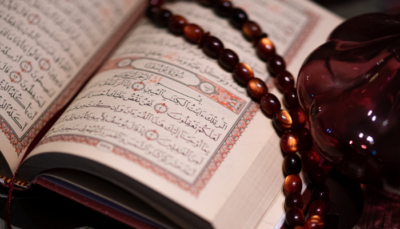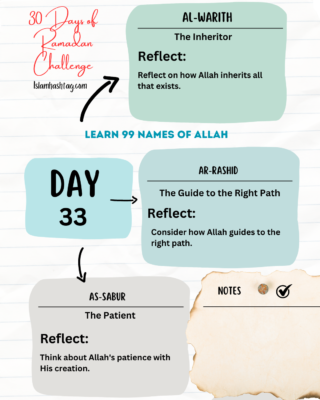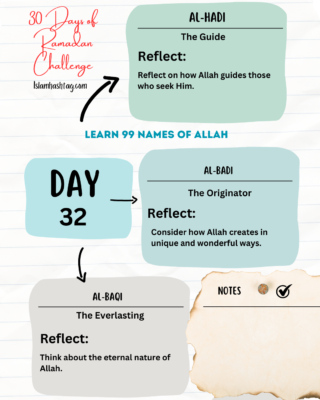Quran on forgiveness of sins
Quran teaches us that Allah is the most forgiving, the most merciful. Seeking forgiveness is essential for spiritual growth and salvation. One should never despair in Allah’s mercy and continue seeking his forgiveness.
Now that we are in 27th Ramadan and we all are continuously seeking forgiveness, Let us read what Quran says on forgiveness of sins. May Allah forgive us all.
Quranic verses on Allah’s forgiveness :
- As for those who turn to Allah in sincere repentance, Allah will turn to them in forgiveness. Allah calls all the polytheists, sinners, and transgressors to seek His forgiveness and declares to them that the doors to His mercy are wide open: “O My servants who have transgressed against their souls! Do not despair of Allah’s mercy, for Allah forgives all sins. He is Forgiving, Most Merciful.” [Sūrah al-Zumar: 53]
- Allah says: “Announce, (O Muhammad) to My slaves that verily I am the Forgiving, the Merciful.” [Sūrah al-Hijr: 49]
- “I am Forgiving to those who repent and believe and do good, and afterward follow right guidance.” [Sūrah TāHā: 82]
- “The angels glorify and praise their Lord and seek forgiveness for those on the earth. Verily, Allah is the Forgiving, the Merciful”.[Surah Ash-Shura 42:5]
- In one instance, the Qur’an refers to Allah as being “the best of those who forgive” when relating where Moses offers the following supplication: “You are our Protector: so forgive us and give us Your mercy; for you are the best of those who forgive.” [Sūrah al-A`rāf: 155]
- Allah mentions the claim of the Christians who say: “Indeed Allah is one of three.” In the very next verse, Allah says: “Will they not turn to Allah and ask His forgiveness? For Allah is Forgiving, Merciful.” [Sūrah al-Mā’idah: 74]
Hadith on Forgiveness
It is stated in the following ḥadīth of Nabī Ṣallallāhu ‘Alaihi Wasallam:
عَنْ أَنَسٍ، أَنَّ النَّبِيَّ صَلَّى اللَّهُ عَلَيْهِ وَسَلَّمَ قَالَ: «كُلُّ ابْنِ آدَمَ خَطَّاءٌ وَخَيْرُ الخَطَّائِينَ التَّوَّابُونَ»
Translation: Every child of Ādam Alaihi Salaam is a sinner, and the best of sinners are those that repent.
Humans are prone to making mistakes. However, one should never give up, rather be remorseful after committing a mistake. Engage in Istighfār and make a firm intention to avoid that mistake in the future. It is stated in a ḥadīth of Nabī Ṣallallāhu ‘Alaihi Wasallam:
عَنْ أَبِي بَكْرٍ الصِّدِّيقِ، رَضِيَ اللَّهُ عَنْهُ، قَالَ: قَالَ رَسُولُ اللَّهِ صَلَّى اللهُ عَلَيْهِ وَسَلَّمَ: «مَا أَصَرَّ مَنِ اسْتَغْفَرَ، وَإِنْ عَادَ فِي الْيَوْمِ سَبْعِينَ مَرَّةٍ»
Translation: He who seeks forgiveness has not been persistent in sin, even if he might repeat the action 70 times.
Don’t let Shaitan to delude you to believe”Continue to your Sins because your Sins are big and it cannot be forgiven .”Allah is “Al Ghaffur ” and “Raheem “.
How do I ask Allah for forgiveness for sin?
“Truly, Allah loves those who repent, and He loves those who cleanse themselves.” [al-Baqarah 2:222]
It is affirmed in the Sunnah that Allah calls forth during the last third of the night, saying: “Is there anyone beseeching me, so I can give? Are any seeking my forgiveness, so I can forgive them? Are there any penitent people for me to pardon? Is anyone calling to me so I can answer?” [Sahīh al-Bukhārī (1145) and Sahīh Muslim (758)]
One of the most important steps is to sincerely repent to Allah and ask for His mercy. This can be done by acknowledging one’s mistakes and expressing remorse for them.
Another step is to make a firm commitment to avoid repeating the same mistake in the future. This requires self-reflection and a willingness to change one’s behavior. It is also important to seek guidance from Allah through prayer and supplication.
In addition, seeking forgiveness from those who have been wronged is also crucial. This involves apologizing to them and making amends if possible. The Quran emphasizes the importance of treating others with kindness and compassion, and seeking forgiveness from them is an important aspect of this.
Finally, performing good deeds and acts of charity can also help to seek forgiveness. These actions demonstrate a sincere desire to make amends and improve oneself. They also serve as a way to earn Allah’s forgiveness and blessings.
A beautiful dua for seeking forgiveness :
اللَّهُمَّ اغْسِلْ خَطَايَاىَ بِمَاءِ الثَّلْجِ وَالْبَرَدِ، وَنَقِّ قَلْبِي مِنَ الْخَطَايَا، كَمَا يُنَقَّى الثَّوْبُ الأَبْيَضُ مِنَ الدَّنَسِ، وَبَاعِدْ بَيْنِي وَبَيْنَ خَطَايَاىَ كَمَا بَاعَدْتَ بَيْنَ الْمَشْرِقِ وَالْمَغْرِبِ
O Allah! Wash away my sins with the water of snow and hail, and cleanse my heart from the sins as a white garment is cleansed of filth, and let there be a far away distance between me and my sins as You have set far away the East and the West from each other.
Can Allah Forgive our Sins If they are major Sins
In the Quran, major sins are referred to as “kaba’ir” or “great sins.” These are actions that are explicitly forbidden by Allah and carry severe consequences. Examples of major sins include murder, adultery, theft, and idolatry.
Committing a major sin is considered a direct disobedience to Allah and can lead to eternal punishment in the afterlife if one does not repent and seek forgiveness. The Quran states that those who commit major sins will be punished with a painful torment in Hellfire.
Furthermore, major sins can also have negative consequences in this life. They can damage relationships, harm oneself and others, and lead to a sense of guilt and shame. It is important to recognize the severity of these sins and strive to avoid them at all costs.
However, it is important to note that even those who have committed major sins are not beyond redemption. The Quran emphasizes the importance of sincere repentance and seeking forgiveness from Allah. Through repentance and good deeds, one can hope to earn Allah’s mercy and forgiveness.
Don’t let Shaitan delude you to believe”Continue to your Sins because your Sins are big and it cannot be forgiven .”
Allah Says-
- Then, verily! Your Lord for those who do evil (commit sins and are disobedient to Allâh) in ignorance and afterward repent and do righteous deeds, verily, your Lord thereafter, (to such) is Oft-Forgiving, Most Merciful. [An-Nahl 16:119]
- Declare (O Muhammad SAW) unto My slaves, that truly, I am the Oft-Forgiving, the Most-Merciful. [Al-Hijr 15:49]
- Your Lord knows best what is in your inner-selves. If you are righteous, then, verily, He is Ever Most Forgiving to those who turn unto Him again and again in obedience, and in repentance. [Al-Isra 17:25]
- And verily, I am indeed Forgiving to him who repents, believes (in My Oneness, and associates none in worship with Me) and does righteous good deeds, and then remains constant in doing them, (till his death). [Ta-Ha 20:82]
- And (commanding you): “Seek the forgiveness of your Lord, and turn to Him in repentance, that He may grant you good enjoyment, for a term appointed, and bestow His abounding Grace to every owner of grace (i.e. the one who helps and serves needy and deserving, physically and with his wealth, and even with good words). But if you turn away, then I fear for you the torment of a Great Day (i.e. the Day of Resurrection). [Hud 11:3]
This is an example of Allah’s generosity and boundless favour. Prophet Muhammad (peace be upon him) relates that Allah says: “O child of Adam! However much you beseech Me and place your hopes in Me, I will forgive you without any reservation. O child of Adam! If you have sins piling up to the clouds and then ask My forgiveness, I will forgive you without any reservation. O child of Adam! If you come to me with enough mistakes to fill the Earth, and meet Me without associating anything as a partner with Me, I will come to you with enough forgiveness to fill the Earth.” [Sahīh Muslim (2687)]
Allah forgives whom He pleases. Allah makes it clear that His forgiveness is determined by his will. “Allah does not forgive that partners be associated with Him, but He forgives other than that for whomever he pleases.” [Sūrah al-Nisā’: 48]
This verse affirms for us that Allah forgives all sins, without exception. Allah is willing to forgive even polytheism and unbelief, as long as the perpetrator renounces such falsehoods and sincerely repents. Success comes from Allah, and Allah knows best.
Seeking forgiveness of Minor sins:
It is believed that even small sins can accumulate and lead to bigger problems if left unchecked. Seeking forgiveness for minor sins is a way to cleanse oneself and maintain a pure heart.
Minor sins may include lying, backbiting, being ungrateful, and neglecting prayers. These sins may seem insignificant, but they can still have negative consequences on our spiritual well-being. Seeking forgiveness for these sins helps us to stay humble and avoid becoming complacent in our faith.
Moreover, seeking forgiveness for minor sins is an act of worship that brings us closer to Allah. It shows our sincerity and humility towards Him and strengthens our relationship with Him. It also helps us to develop a sense of accountability and responsibility for our actions.
Dua for Forgiveness:
Repent with a clear heart and read the Duas taught by Prophet(SAW) to seek forgiveness. Allah willing,You fill find Peace.
Dua : wash our heart with snow, water and hail
اللَّهُمَّ اغْسِلْ خَطَايَاىَ بِمَاءِ الثَّلْجِ وَالْبَرَدِ، وَنَقِّ قَلْبِي مِنَ الْخَطَايَا، كَمَا يُنَقَّى الثَّوْبُ الأَبْيَضُ مِنَ الدَّنَسِ، وَبَاعِدْ بَيْنِي وَبَيْنَ خَطَايَاىَ كَمَا بَاعَدْتَ بَيْنَ الْمَشْرِقِ وَالْمَغْرِبِ
O Allah! Wash away my sins with the water of snow and hail, and cleanse my heart from the sins as a white garment is cleansed of filth, and let there be a far away distance between me and my sins as You have set far away the East and the West from each other.
Hadith on forgiveness are:–
In one hadith, Abdullah bin Abbas (May Allah be pleased with them) narrates that Rasulullah (Sallallahu Alayhi Wasallam) said:
“The one who (regularly) says Istighfaar, that is, frequently repent to Allah Ta’aala for sins committed, Allah Azza Wa-Jal will open a path from poverty and difficulties. All sorrow and hardship will be removed, and in its place prosperity and contentment granted. One will receive sustenance from unimagined and unexpected sources.”
The Prophet Muhammad (saw) has taught us many words of repentance and it is good if we learn, understand, and use them. Of these one has been mentioned as Syed-ul-Istighfar (the master of forgiveness). A hadith explains its extraordinary significance: “If a believer says this with complete faith and sincerity in the morning and dies before that evening, he will enter paradise. If he says it during the night and dies before the morning, he will enter paradise.” This powerful du’a is our daily pledge of allegiance. We will do well to memorize it in Arabic and never let a day or night go by without saying it with full consciousness:
Discover more from Islam Hashtag
Subscribe to get the latest posts sent to your email.







